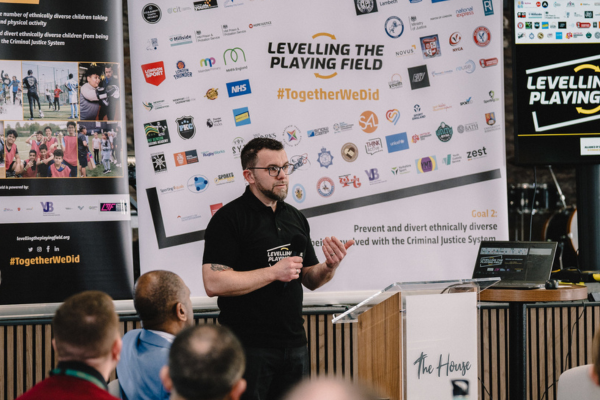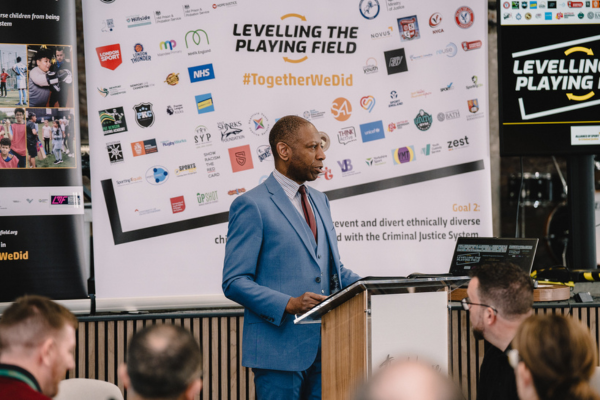The Levelling the Playing Field project could be a ‘gamechanger’ in terms of understanding the over-representation of ethnically diverse children in the Youth Justice System, and their under-representation in sport and physical activity, according to new research.
The Research Team at the University of Birmingham has published its final evaluation report on the project, which was delivered in four areas across the UK (London, West Midlands, South Yorkshire, and Newport in South Wales) between 2020 and 2023, with delivery and further development still ongoing.
The report ‘Background Evidence, Methodology and Findings of the Levelling the Playing Field Project’ (LtPF) was authored by Professor Joan L Duda, Dr Hannah Hammond and Dr Paul Appleton, and officially released at an LtPF celebration event in Newport this week.
PROMISING
During the project, more than 100 LtPF partner organisations engaged 35,672 children and young people, with 63% of them ethnically diverse. In September 2024 a government report rated the project as ‘promising’.
Researchers noted how this targeted approach enabled a “level of specificity on ethnicity” in monitoring and evaluation which is unprecedented in the sports sector, meaning the project could set a blueprint for how to obtain “informed insight into ways to more effectively harness the ‘power of sport’ to tackle crime”.

They added: “The demographic data collected throughout the LtPF project creates an accessible foundation on which we can build monitoring, evaluation and learning, with regards to disproportionality in our sport and justice sectors, at scale, on a local and regional basis.”
Justin Coleman, Chief Operating Officer (pictured above) for the Alliance of Sport in Criminal Justice which oversaw the project, said: “We’re deeply grateful to the London Marathon Foundation, the Youth Justice Board and the University of Birmingham for their vital partnership and dedication.
“This groundbreaking research, generated by the passion of more than 100 organisations and 1000-plus staff working in multi-agency settings, demonstrates the power of ‘connection before correction’ and ‘safe faces in safe places’.”
INEQUALITIES
Justin added: “The seven key recommendations within the report offer a clear path to achieving equity, increasing physical activity, and strengthening lifelong community connections, and hold a key to reducing inequalities and disproportionality within youth justice settings. Together, we are levelling the playing field.”
Professor Joan L Duda and Dr Hannah Hammond, from University of Birmingham, commented: “The launch of this report marks a significant milestone, as it will now be available for everyone to read, reflect on and engage with ahead of a larger event later in the year. We strongly encourage all stakeholders – whether from sport, youth justice, policy-making or community engagement – to delve into the findings, consider their implications and challenge themselves to think critically about their responses.

“Our data provides compelling evidence of both the ‘what’ and the ‘how’ – shedding light on the impacts of Specialist Delivery Organisations (SDOs) working in the Third Sector. The research suggests that these organisations, when operating within a robust multi-agency framework across sport and justice – such as the one facilitated by LtPF – are key to ‘levelling the playing field’ for young people. The insights drawn provide a vital evidence base for harnessing the power of sport to address crime and social disparities.”
Keith Fraser, Chair of the Youth Justice Board (pictured above), said: “The Levelling the Playing Field project has been a beacon of hope, using sport to break down barriers, promote fairness, and transform the lives of over 35,000 children - 63% from ethnically diverse backgrounds. This report provides recommendations to extend the project’s impact which we are actively exploring, including how we can help share its insights more widely. Sport and physical activity is a powerful tool for change and this initiative has clearly had a positive impact on children’s lives. In turn, this will contribute towards safer and fairer communities for all.”
Read the full story at allianceofsport.org
Pic credit: Alliance of Sport / Sophie Jordan










